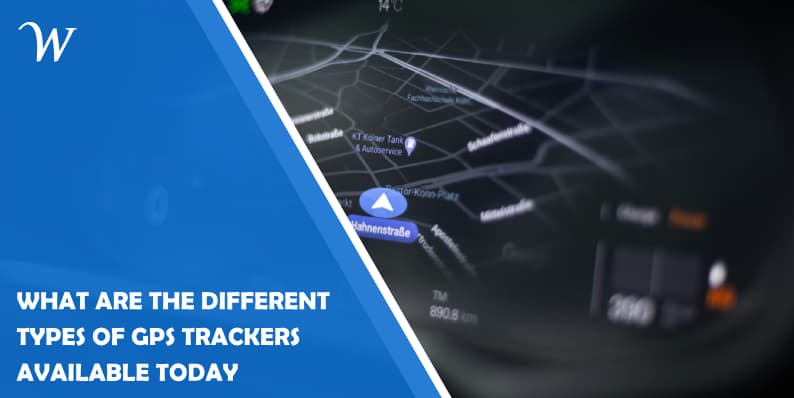Do you love spy movies? Who are we kidding? Almost everyone enjoys the thrill of the action and suspense of thrillers. Have you ever noticed an undercover agent placing a small piece of hardware inside the trunk or attaching it to the bottom of the chassis? They do it to monitor the vehicle’s movements. Today, we will talk about this device – a GPS tracker!
Some films show a nickel-sized piece of gear, while in others, you may notice something bigger. What separates these gadgets from all other GPS devices? Are all these options equally effective? Why do you plug one into a socket and another one runs on batteries? The answers to all these questions are right here. Just take a look at all the types of tracking solutions currently available in the market. With this information, you will find it easy to pick the best option for your car.
The fundamentals of vehicle tracking
GPS depends on a network of satellites, where each sends out a signal to do its magic. These artificial wonders of science circle the Earth in space and determine a vehicle’s location. The signals emitted by these satellites are received by receivers in the car GPS tracker, which is used to pinpoint where an automobile is at any given moment.
Now, there is another method where cellular towers are used instead of satellites to triangulate location. Technically, this is not GPS. However, most folks use the word GPS as a flashy term that calculates location.
Some people even find it surprising that a GPS device serves multiple purposes. It is most frequently used to locate vehicles and even people.
GPS trackers for vehicles and other assets
Most tracking devices for cars and other equipment are designed for consumer and fleet automobiles. There are also a few variants created for trailers and boats.
They are usually small, less than the size of your smartphone. Some of them draw power from the vehicle, while others leverage batteries.
Typically, these devices rely on cellular data to draw information. After that, the users get everything on a mobile app, which they can use when they need to.
Below, you will find a list of the most widely used tracking devices.
-
Plug-and-play OBD2 GPS tracker for vehicles
Plug-and-play devices are very easy to use. You just need to plug one of these into your vehicle’s OBD-II port, which is usually located below the dashboard. Unlike the other variants you will read about here, these don’t require professional installation. Via the OBD-II port, they are hardwired to the onboard computer and tell you your vehicle’s exact location, speed, total mileage, driver’s behavior, fuel consumption, battery condition, general maintenance data, and much more.
-
Hardwired GPS tracker for cars
Hardwired gadgets are excellent for business fleet vehicles. They are installed directly into the electrical system. Unlike the previous variant, they are discreet as they are installed under the hood. Naturally, they remain out of sight, and a fleet driver will not be able to tamper with them without a mechanic’s help. Only professionals can set up these vehicle tracking devices.
-
Battery-powered vehicle tracking devices
Battery-powered GPS devices, as the name suggests, are powered by batteries connected to the gadget. You can put them anywhere in your vehicle, even below the chassis. While these trackers are easy to move around with, they need periodic charging and battery replacement. Battery life depends on total usage, battery quality, device model, and location update frequency.
-
Active car tracking devices
An active GPS device uses real-time satellite signals to relay location data, making vehicle tracking super easy. These gadgets offer immediate locational information across web or mobile devices when connected to tracking systems and solutions. Just like any other type of GPS, these help fetch real-time movement data, speeding data, and vehicle routes. Also, when connected to a tracking device or software, these can help provide instant alerts and geofences to keep the asset safe.
-
Passive car tracking devices
Passive trackers, with internal data storage systems, are the most cost-effective alternatives in the market. However, it can retrieve the data only when you connect the device to a computer to process the information it contains. Passive trackers are great for historical route analysis for industries like R&D and logistics, but you can’t use them to track your cars.
-
Asset tracker device for cars and fleets
Asset tracking units are portable but hardwired. They are perfect for small to high-value assets. You will find them in multiple forms, such as OBD-II trackers, AVL trackers, personal trackers, or even pet trackers. Asset trackers are suitable to connect to various non-moving assets, such as trainers, containers, and other pieces of heavy equipment.
Wrapping it up
Regardless of all the variants of GPS trackers for vehicles penetrating the market, make sure you buy the most sought-after product. It has to fit your budget, purpose, and scope. It should also add to your vehicle’s safety.
Are you a fleet manager or a worried parent of a teenager who needs to keep track of their driver? One GPS tracker from Vyncs is all you need. Visit us to learn more about what our products are capable of.
